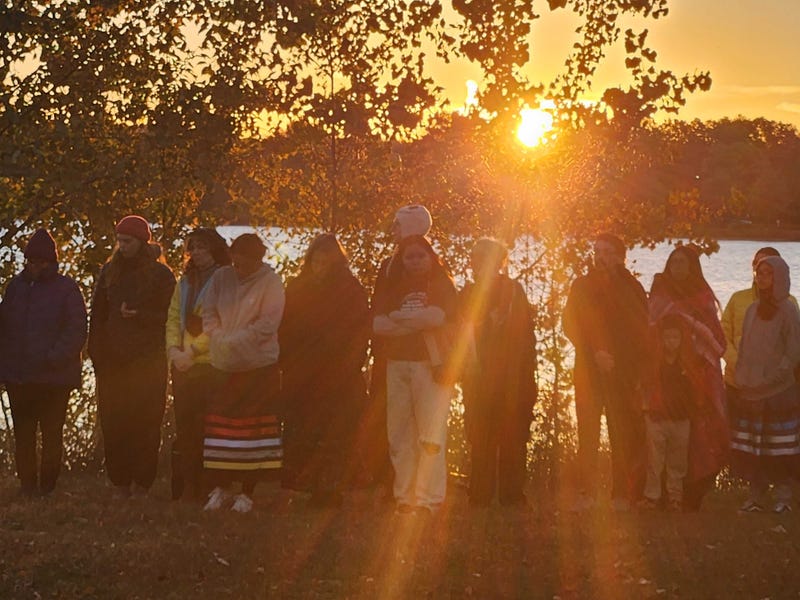
Monday marks Indigenous Peoples Day in Minnesota, and there are ceremonies taking place in both Minneapolis and St. Paul.
It began at daybreak at Thomas Beach on the south shore of Lake Bde Maka Ska, the site of the annual Sunrise Ceremony with the Metropolitan Urban Indian Directors.
Also in Minneapolis, the third Annual Water Blessing is being held to honor Haha Wakpaden, which is the Dakota name for Basset Creek.
The American Indian Magnet School in St Paul is hosting a gathering which will include a feast, dancing, music, lacrosse demonstrations and more.
It was 2023 when Minnesota officially renamed Columbus Day as Indigenous Peoples Day. The cities of Minneapolis and St. Paul did so several years prior.
Indigenous Peoples Day has been recognized for decades in different forms and under a variety of names to celebrate Native Americans’ history and culture and to acknowledge the challenges they continue to face.
In 2021, President Joe Biden issued the first-ever presidential proclamation of Indigenous Peoples Day. He said in a statement that the day is meant to “honor America’s first inhabitants and the Tribal Nations that continue to thrive today.” He last marked Indigenous Peoples Day in 2024.
President Donald Trump made clear in April that he would not follow his predecessor’s practice of recognizing Indigenous Peoples Day alongside Columbus Day in October. He accused Democrats of denigrating the explorer’s legacy as he pressed his campaign to restore what he argues are traditional American icons.
On Thursday, Trump issued a proclamation for Columbus Day but not Indigenous Peoples Day. In his first term, Trump recognized National Native American Heritage Month, which takes place in November.
Indigenous Peoples Day is typically observed on the second Monday in October, the same day as Columbus Day, a federal holiday established decades ago to recognize Columbus’ sighting in 1492 of what came to be known as the Americas.
Although Indigenous Peoples Day is not a federal holiday, 17 states — including Minnesota, Washington, South Dakota and Maine — as well as Washington, D.C., have holidays honoring Native Americans, according to the Pew Research Center. Many of these state holidays are paired with Columbus Day or replace it altogether. Dozens of cities and school systems also observe Indigenous Peoples Day.
